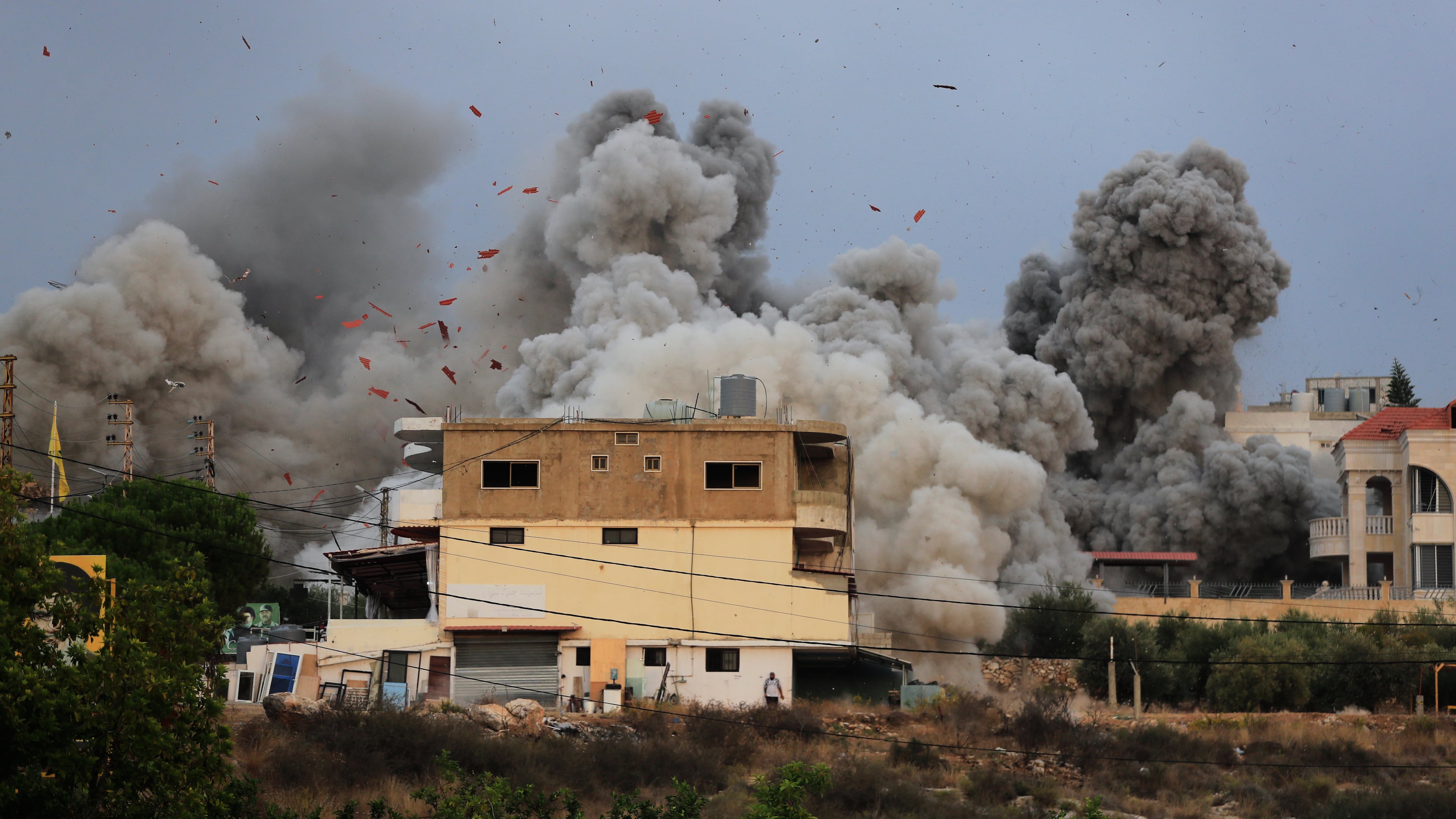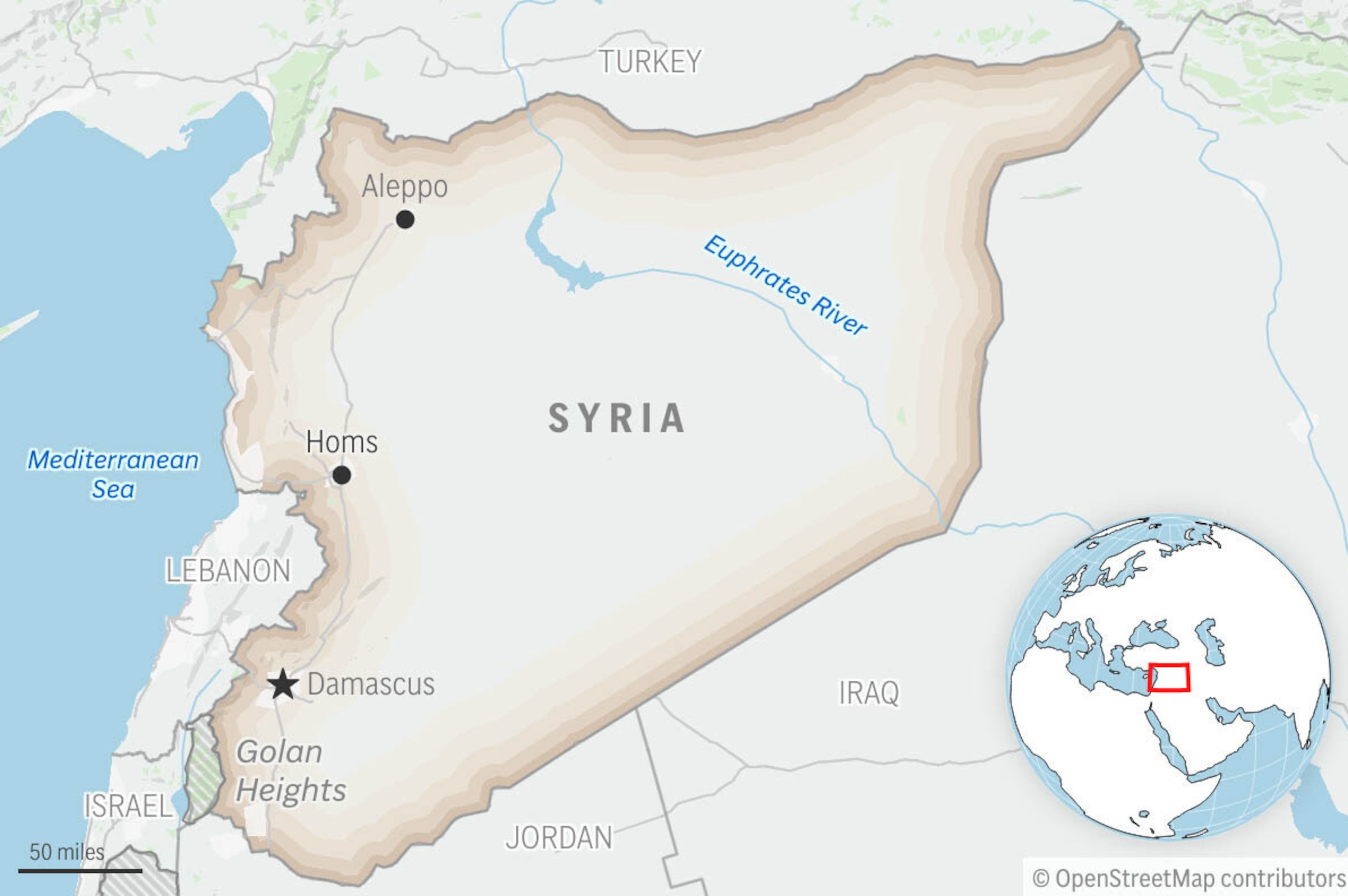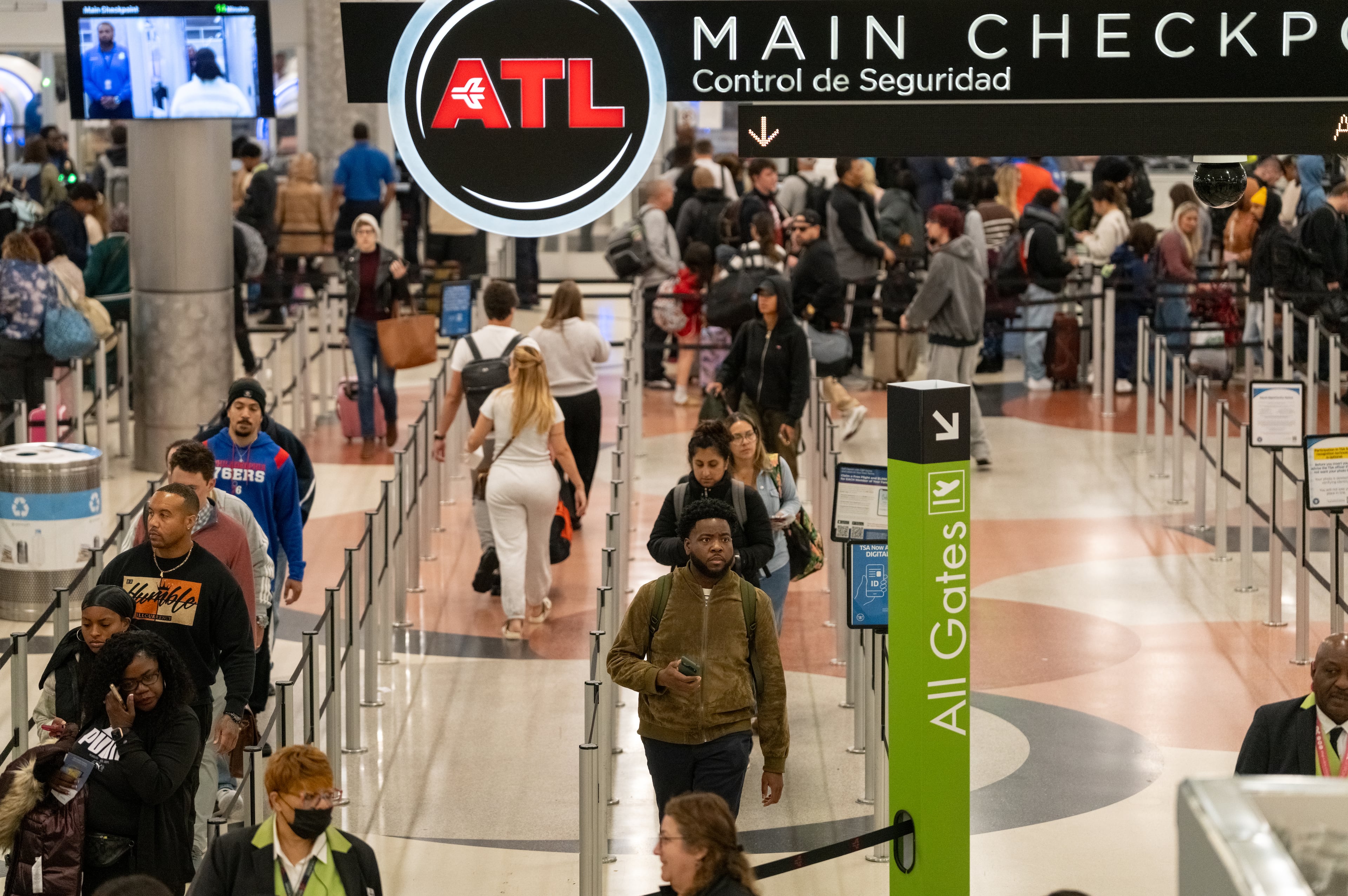Israeli jets strike southern Lebanon towns, escalating near-daily attacks

BEIRUT (AP) — Israeli jets struck several towns in southern Lebanon on Thursday after urging residents to leave, marking an escalation in their near-daily strikes on the country.
The airstrikes came hours after militant group Hezbollah urged the Lebanese government not to enter negotiations with Israel.
Israeli Arabic spokesperson Avichay Adraee warned residents in Tayba near the border, Teir Debba located just east of the coastal city of Tyre, and Aita al-Jabal in southern Lebanon, to flee 500 meters (about 1,600 feet) away from residential buildings they are targeting, which they say have been used by Hezbollah. It later issued more warnings for the towns of Zawtar al-Sharqiyah and Kfar Dounin.
The Israeli military said it targeted military infrastructure for Hezbollah in those areas, including “weapons storage facilities... constructed in the center of civilian-populated areas.”
It accused the group of rebuilding its capabilities almost a year after a U.S.-brokered ceasefire went into effect that ended a monthslong war. While most residents evacuated the threatened areas ahead of the strikes, Lebanon's health ministry reported one person wounded.
“We will not allow Hezbollah to rearm themselves, to recover, build back up its strength to threaten the state of Israel,” Israeli government spokesperson Shosh Bedrosian said at a briefing Thursday.
The strikes came as Lebanese Prime Minister Nawaf Salam and his government met in Beirut to follow up on a plan drafted by the Lebanese military to disarm Hezbollah and other non-state armed groups in the country. Information Minister Paul Morcos said, following the meeting, that the cabinet “commended the progress (the army) has made... despite continued obstacles, foremost among which is the continuation of Israeli hostilities.”
Lebanese President Joseph Aoun has been critical of Israel’s strikes and ongoing occupation of five hilltop points on Lebanese territory but has said he is open to negotiations with Israel to end the tensions.
Aoun said in a statement after Thursday's strikes that “every time Lebanon expresses its openness to peaceful negotiations... Israel intensifies its aggression.”
“Nearly a year has passed since the ceasefire came into effect, and during that time, Israel has spared no effort to demonstrate its rejection of any negotiated settlement between the two countries," he said. "Your message has been received.”
Israel says its near-daily strikes have targeted Hezbollah officials and military infrastructure, while the Lebanese government that has backed disarming Hezbollah say the strikes have targeted civilians and infrastructure unrelated to the Iran-backed group.
The powerful group’s military capabilities were severely damaged in Israel’s intense air campaign over the tiny country in 2024, but Hezbollah have yet to disarm and its leader Sheikh Naim Kassem has said that the group will be ready to fight no matter how limited their capabilities might be.
Both sides have accused each other of violating the ceasefire, which nominally ended the latest Israel-Hezbollah war last November. The conflict started after the Oct. 7, 2023, Hamas-led attack on Israel that triggered the war in Gaza.
Hezbollah began firing rockets into northern Israel in support of Hamas and the Palestinians, prompting Israeli airstrikes and artillery shelling in return. The low-level exchanges escalated into full-scale war in September 2024.
Lebanon’s health ministry has reported more than 270 people killed and around 850 wounded by Israeli military actions since the ceasefire took effect. As of Oct. 9, the U.N. human rights office had verified that 107 of those killed were civilians or noncombatants, said spokesperson Thameen Al-Kheetan.
No Israelis have been killed by fire from Lebanon since the ceasefire. Hezbollah has claimed one attack since the agreement took effect.
Also Thursday, the U.S. Treasury announced a new set of sanctions that it said target “financial operatives who oversee the movement of funds from Iran” to Hezbollah, including through licensed and unlicensed money exchanges shops that it said “fail to conduct adequate screening on their customers” and allow Hezbollah “to take advantage of Lebanon’s largely cash-based economy to launder illicit money.”
—-
Associated Press journalist Areej Hazboun in Jerusalem contributed to this report.

